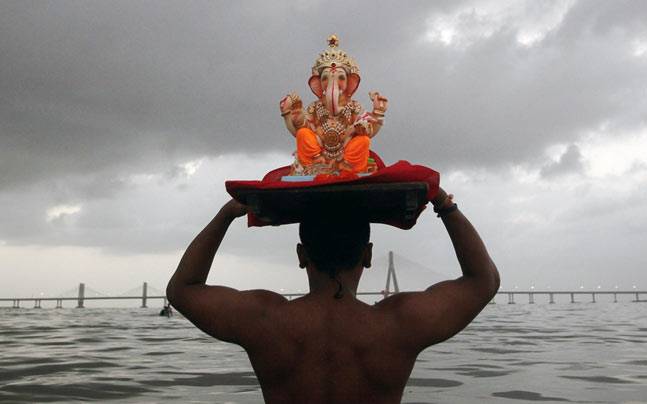Under Chatrapati Shivaji
The exact date of the inception of Ganesh Chaturthi is not known. A common belief persists that public celebration began in Pune under Chatrapati Shivaji Maharaj (1630- 1680), founder of the Maratha Empire.
Later it was carried forward by the Peshwas serving the post equivalent to that of Prime Minister from 1713 to 1818. Ganapati was their family Deity (Kuladevata) and Ganesh Caturthi enjoyed state patronage under their rule.
The festival came to be celebrated in different parts of the Maratha Empire. Although the festival was celebrated publicly in Pune and parts of Maharashtra after the Peshwa’s downfall in 1818, the festival lost state patronage.
Bhausaheb Laxman Javale
In 1892, Bhausaheb Laxman Javale is credited with reviving the tradition of sarvajanik (public) Ganesha idol during Chaturthi celebrations. Javale may have been influenced by Krishnajipant Khasgiwale as he had witnessed the traditional public celebration of Ganesh Chaturthi in the state of Gwalior, then ruled by the Maratha kings of the Scindia dynasty. Khasgiwale came to Pune and spoke about it with his friends in Pune.
Lokmanya Tilak
Lokmanya Tilak praised the efforts of Javale in his Paper ‘Kesari’. In 1893, Tilak followed it by installing a Ganesh idol in Kesari’s office. He promoted the festival as a public event and he is also credited with making it popular among the masses.
Tilak’s aim in promoting the festival was due to Ganesha’s appeal as the “the god for everybody” and imbibing the spirit of nationalism among the Maharastrians in order to fight the British. He intended to “bridge the gap between ‘Brahmins’ and ‘non-Brahmins’ and find a context in which to build a new grassroots unity between them”
Goa
Ganesh Chaturthi celebration predates Kadamba rule in Goa. Under the Inquisition the religious freedom was curtailed and this led to people worshiping Ganesha in secret. The idols were hidden or in its place ‘patri’ (leaves) were used for the worship. However these restrictions were limited to the Portuguese ‘old conquest’ and the ‘new conquest’ territory. The festival is more popular as a family affair in Goa, family members gather in their ancestral home to celebrate Ganesh Chaturthi.


